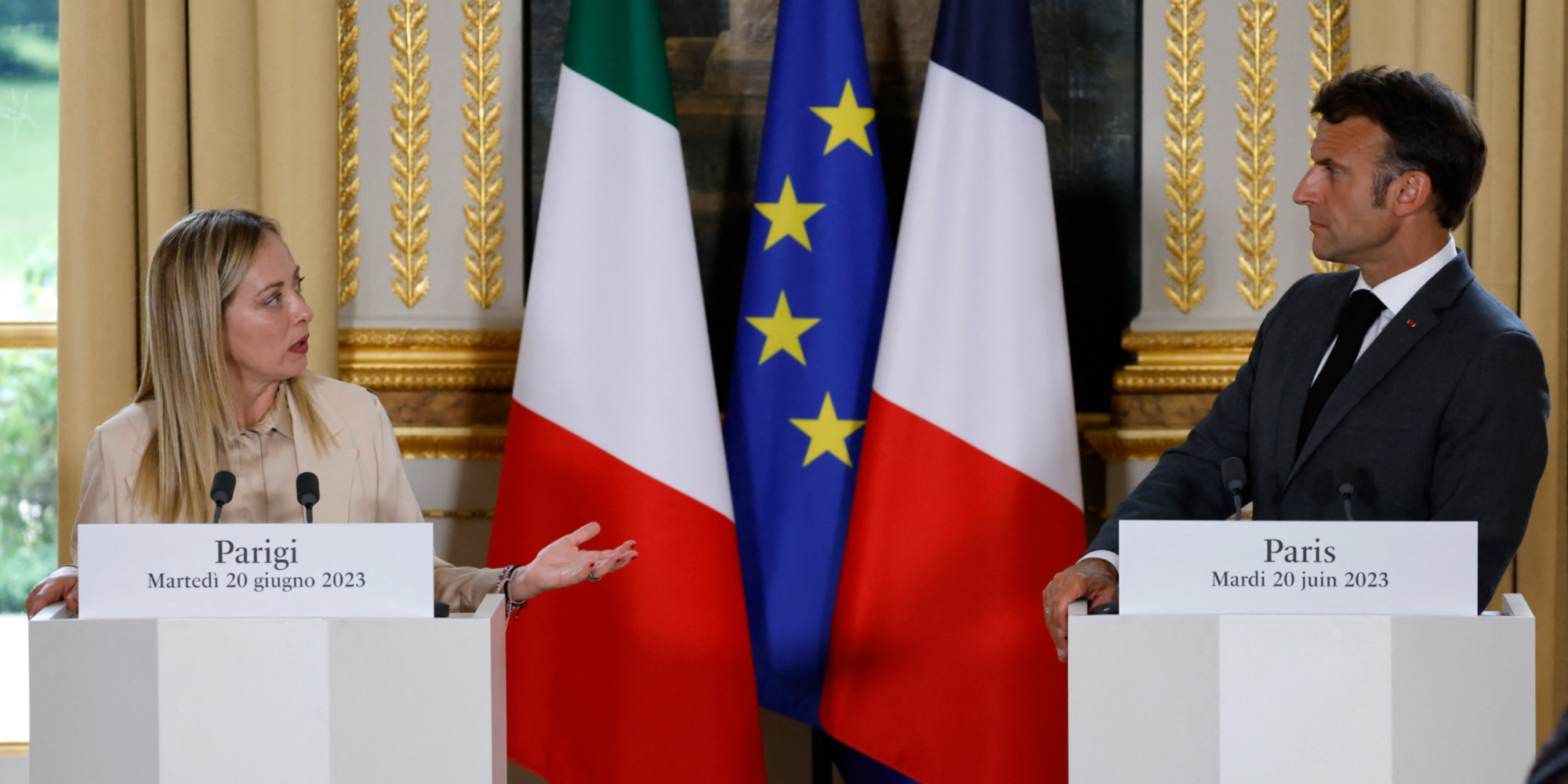Arthur De Laborde with AFP / Photo credits: Ludovic MARIN / AFP
modified to
7:15 p.m., June 20, 2023
Emmanuel Macron and Giorgia Meloni on Tuesday showed their intention to “work together” beyond “controversies”, in particular on the thorny issue of immigration which has so far poisoned their relations. During this first visit to Paris by the head of the Italian government, the French president invoked “this unique relationship that exists between Italy and France”. “It’s this friendship that matters to me in the first place”, “the one that sometimes allows controversies, disagreements to live, but in an always respectful framework because it is part of a story bigger than us, more deep, which has fed our imaginations, our artists, collective adventures”, he added to the press. He pleaded for a “frank, ambitious, demanding dialogue” between Paris and Rome.
“Italy and France are two linked nations, two important, central nations, protagonists in Europe who need dialogue at a time like this because our common interests are very convergent,” replied Giorgia Meloni. “I am hopeful that from today’s dialogue, we will be able to work even better and even more together”.
The migration file has fueled tensions
Everything is supposed to oppose Emmanuel Macron, who claims to be a frankly pro-European progressivism, and Giorgia Meloni, at the head of an ultra-conservative coalition, itself from a post-fascist party and who married in the past clearly Eurosceptic positions. And in fact, the sparks did not take long. After a brief informal meeting in Rome in October in the wake of the appointment of Giorgia Meloni, victorious in the legislative elections, the migration file has fueled tensions.
In particular when Italy refused in November to welcome the humanitarian ship Ocean Viking and the 230 migrants on board, pushing France to let it dock while denouncing the “unacceptable” behavior of Rome. Or when the French Minister of the Interior Gérald Darmanin aroused transalpine ire this spring by judging Giorgia Meloni “unable to resolve the migratory problems on which she was elected”.
“The coordination between our two countries must continue”, says Macron
But at the same time, diplomatic circles have worked to rebuild ties. And after several meetings on the sidelines of international meetings, the Italian Prime Minister ended up going to Paris where she had been invited for many months – even if her visit is officially aimed at defending Rome’s candidacy for Expo 2030. The two leaders mentioned the migration issue to show that cooperation was possible.
“We continue to experience tragedies in the Mediterranean,” noted the French head of state. “Coordination and good work between our two countries must continue”, “we must be able to organize asylum and migration more effectively in Europe by being faithful to our values”, he added. addressing his “dear Giorgia”.
At his side, Giorgia Meloni defended her very hard positions on the matter, while also insisting on the need to continue “to work together both at bilateral and multilateral level”. “Despite the political and ideological differences between the two governments, there is an awareness in Meloni and Macron that France and Italy must act together. This corresponds to the interests of both countries,” the historian told AFP. Marc Lazar, professor at Sciences-Po.
“Divergences” on Europe
According to him, “real convergence” exists in the face of the war in Ukraine and on the renegotiation of the European budgetary stability pact, with the approach of the European Council at the end of June and the NATO summit scheduled for July 11 and 12 in Vilnius. Since she came to power, Giorgia Meloni has in fact shown herself to be very attached to supporting kyiv and very measured towards Brussels. Common support for Ukraine was also reaffirmed on Tuesday, the day after Emmanuel Macron’s announcement of the now operational deployment on the ground of a Franco-Italian SAMP / T surface-to-air missile system.
“We can see that between France and Germany at the moment it’s not folichon”, comments for his part Jean-Pierre Darnis, professor at the Luiss University in Rome. The Meloni-Macron duo therefore has “every interest” in consolidating “convergence” on the European economic side. Between now and the European elections in June 2024, “there will be no lack of controversy between the Italian right and Macron’s party”, which have “deep differences on the future of Europe”, which “risks reflecting on the normalization of relations”, however warns Marc Lazar.
